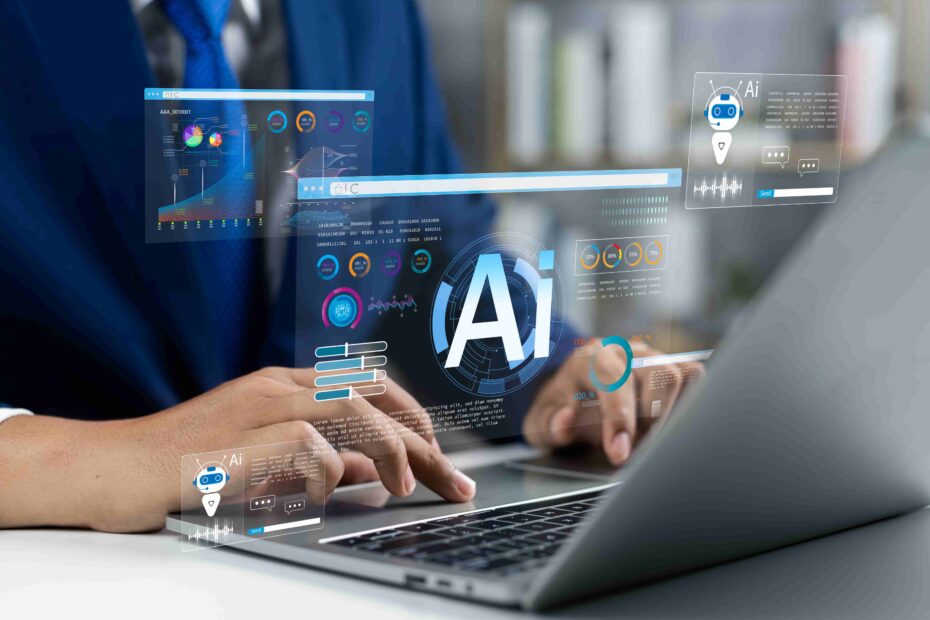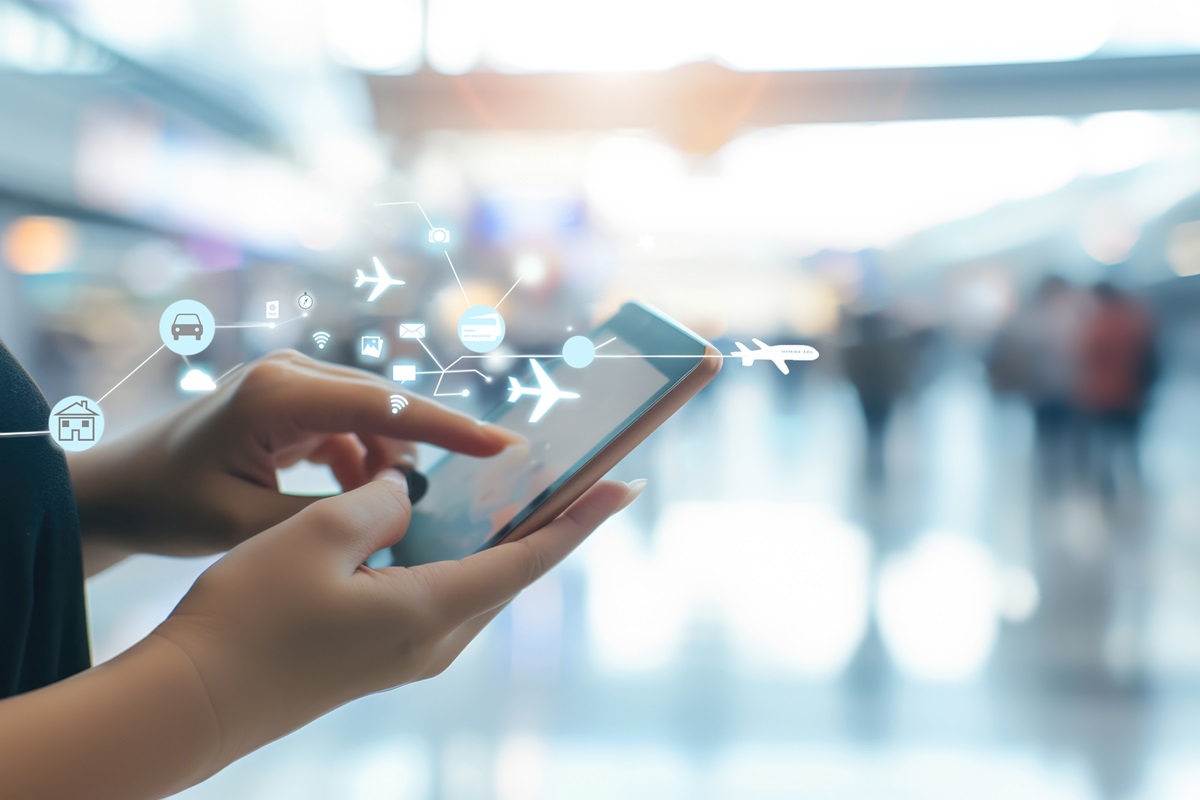Transforming the World with AI: The Trends and Innovations That Will Redefine Tomorrow
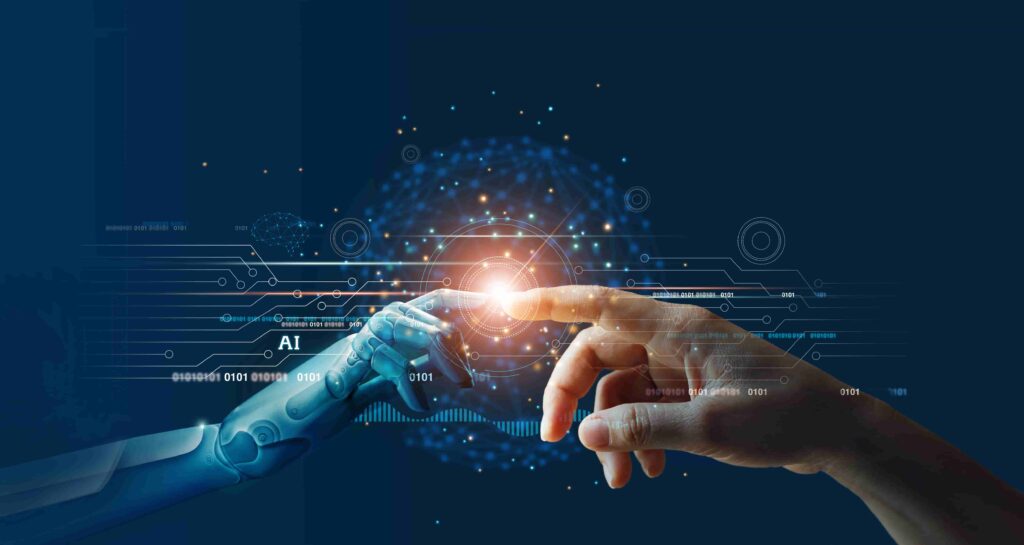
Artificial intelligence (AI) is already deeply embedded in our lives, shaping how we live, work and connect.

The Most Popular Apps to Listen to Free Music
Want to listen to music without paying? Check out our list of the best apps to listen to music for free, offline and without ads!
From virtual assistants to self-driving cars, advances in AI have transformed industries and revolutionized everyday life. But what does the future hold? What innovations are yet to come?
In this article, we explore the future of artificial intelligence, discussing emerging trends, ethical challenges, impact on different sectors and the changes this technology will bring in the coming years.
Definition and Importance of Artificial Intelligence in the Current Context
Artificial intelligence refers to the ability of machines and computer systems to perform tasks that would normally require human intelligence, such as learning, reasoning, problem-solving, and decision-making.
AI is not a single technology, but a set of interconnected disciplines, such as machine learning, computer vision, neural networks, and natural language processing (NLP).
Each of these areas plays a critical role in making AI systems more sophisticated and efficient.
Importance of AI in Today's World
In the current context, AI is a driving force behind technological innovation in virtually every sector of the economy and society.
- Operations Optimization: Companies use AI to improve manufacturing processes, manage inventory, and predict market trends.
- Health and Science: AI algorithms are accelerating scientific research and helping doctors make more informed decisions.
- Smart Cities: AI systems analyze large volumes of data to improve urban mobility, reduce emissions and increase safety.
Furthermore, AI is fundamental to digital transformation on a global scale, bringing solutions that increase efficiency and personalize services.
Recent Advances in Artificial Intelligence and Impact on Industries
Artificial intelligence has gone from being a futuristic promise to becoming a transformative reality in several sectors.
In recent years, advances such as deep learning, large language models, and generative AI have revolutionized the way businesses operate and innovate.
Technologies that once seemed the preserve of science fiction films are now shaping the way we diagnose diseases, manage supply chains and even create artistic content.
This accelerated progress not only optimizes processes and reduces costs, but also redefines standards for productivity and creativity on a global scale.
In this section, we explore the latest advances in artificial intelligence and how they are impacting industries around the world, creating opportunities and challenges in an ever-evolving landscape.
Areas with Significant Impact
- Health: AI is revolutionizing medical diagnosis with algorithms that detect diseases like cancer, diabetes, and Alzheimer's with high accuracy.
Real example: The use of AI to analyze radiological images has significantly reduced diagnostic time, enabling faster and more effective treatments.
2. Generative AI: Tools like DALL-E and ChatGPT have demonstrated the creative potential of AI, generating texts, images and even musical compositions. This has opened doors to new applications in marketing, entertainment and design.
3. Financial Sector: Banks and fintechs are using AI for predictive analytics, fraud detection, and improving customer experience through chatbots and virtual assistants. AI has helped reduce credit approval times and prevent billions in losses from financial fraud.
4. Logistics and Transportation: Companies like Amazon and Tesla are using AI for fleet automation, logistics planning and the development of autonomous vehicles.
These advancements have not only optimized existing processes but also created new business opportunities, demonstrating how AI can be a game-changer across multiple industries.
Future Trends in AI: What's Coming?
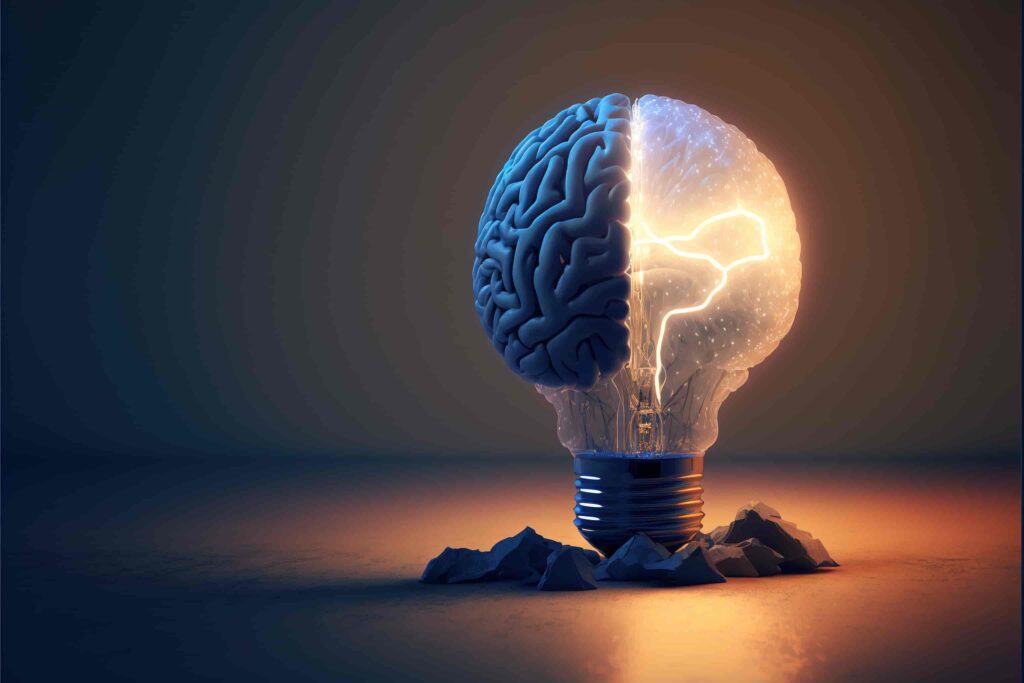
The future of artificial intelligence is full of innovations that promise to further transform society, the economy and people's daily lives.
In the coming years, AI is expected to overcome many of its current limitations and become even more deeply integrated into our lives, becoming an essential component in virtually every industry.
Below, we highlight the key trends that will shape the future of artificial intelligence and their expected impacts.
1. Generative AI and Advanced Models
Generative AI models such as GPT and DALL-E are rapidly evolving, with the ability to create highly sophisticated content.
- What to expect in the future:
- Custom Content Production: Tools that generate texts, videos and images adapted to individual preferences, such as unique narratives or interactive films.
- Automatic Software Creation: AI systems capable of writing and debugging code, accelerating the development of complex programs.
- Creative Industries Transformed: AI will be a partner in music production, graphic design and scripts, expanding the limits of human creativity.
2. Integration with IoT (Internet of Things)
The fusion of artificial intelligence and connected devices promises a new level of automation and efficiency.
- Expected applications:
- More Autonomous Smart Homes: Devices that learn users' habits to automatically adjust temperature, lighting and energy consumption.
- Smart Industries: Machines equipped with sensors and AI, capable of predicting failures and optimizing production processes in real time.
- Smart Cities: Transportation systems that use real-time data to reduce congestion and carbon emissions.
3. AI in Education:
The healthcare sector will continue to be one of the most impacted by advances in artificial intelligence.
- Expected innovations:
- Preventive and Early Diagnosis: Systems that analyze genetic and biometric data to predict diseases before symptoms even appear.
- Personalized Medicine: AI will design tailored treatments based on each patient’s medical and genetic history.
- Advanced Surgical Robots: AI-powered robotic assistants will perform complex procedures with greater accuracy and shorter recovery time.
4. Advanced Robotics and Intelligent Automation
AI-powered robotics will take automation to new heights in both industrial and domestic settings.
- What's coming:
- Collaborative Robots (Cobots): Designed to work side by side with humans in factories and offices.
- Domestic Assistance: Robots that perform household tasks autonomously, such as cleaning, cooking and elderly care.
- Space Exploration: AI-equipped robots that independently carry out exploration missions on planets and moons.
5. Artificial Intelligence in Teaching and Education
The education sector will greatly benefit from AI tools that personalize learning.
- How AI will transform education:
- Custom Tutorials: Adaptive systems that adjust content to each student’s learning pace.
- Immediate Feedback: Automatic task correction and personalized suggestions for improvement.
- Realistic Simulations: Virtual learning environments to train practical skills such as surgeries and scientific simulations.
6. Sustainability and Environmental Management
AI will play a vital role in environmental preservation and efficient use of natural resources.
- Expected solutions:
- Smart Agriculture: Systems that monitor soil and climate to optimize the use of water and fertilizers, reducing environmental impacts.
- Waste Management: AI applied to recycling systems to sort and reuse materials more efficiently.
- Climate Monitoring: More accurate forecasts and data analysis to mitigate the effects of climate change.
The Role of AI in Automation and Transformation of the Labor Market
AI-driven automation is one of the main drivers of transformation in the job market.
Artificial intelligence tools enable repetitive and predictable tasks to be performed more quickly, accurately and cost-effectively.
Positive Impacts on the Labor Market
- Productivity Improvement: AI frees workers from repetitive tasks, allowing them to focus on creative and strategic activities.
- Creation of New Jobs: Professions related to the development, training and supervision of AI systems are in high demand, especially in sectors such as technology, healthcare and marketing.
Challenges and Risks:
- Function Replacement: Areas such as customer service, logistics and manufacturing are more vulnerable to replacement by automated systems.
- Workforce Reskilling: The need for ongoing training will be essential to prepare workers for the demands of an increasingly technological market.
AI and Ethics: Challenges and Concerns with Privacy and Decision Making
The exponential growth of artificial intelligence has brought extraordinary innovations, but it has also raised crucial ethical questions.
While AI promises efficiency, accuracy and innovation, it also challenges social and legal norms, calling into question how we treat privacy, transparency and accountability in decisions made by machines.
In this section, we explore the main ethical challenges associated with AI, focusing on the implications for privacy and the risks of delegating critical decisions to automated systems.
1. Privacy and Data Usage
- Collecting large volumes of data is essential for training AI systems, but it also raises concerns about how this information is stored and used.
- Possible solution: Greater transparency in data usage and robust protection policies, such as LGPD regulations.
2. Algorithmic Discrimination:
- Algorithms can perpetuate biases present in the data they were trained on, resulting in unfair decisions.
- Example: AI used in recruitment processes that favors specific profiles based on biased histories.
3. Automated Decision Making:
- Delegating critical decisions, such as medical diagnoses or credit approvals, to AI systems raises questions about transparency, accountability and bias.
These challenges highlight the need for clear regulations and the development of ethical guidelines in the use of AI.
AI and Sustainability: How Technology Can Help the Environment
Artificial intelligence is not only an ally in optimizing processes and solving complex problems in companies, but it also plays a fundamental role in protecting the environment.
By combining machine learning, big data and automation, AI offers innovative solutions to address global environmental challenges such as climate change, resource waste and environmental degradation.
As the climate crisis intensifies, adopting AI-based technologies can help preserve natural resources, reduce carbon emissions, and promote sustainable development.
Here, we explore how AI is helping to create a greener planet.
Sustainable Applications of AI:
- Climate Monitoring: Algorithms analyze satellite data to track deforestation, pollution and climate change.
- Energy Efficiency: AI systems optimize energy consumption in homes, industries and transportation, reducing waste.
- Smart Agriculture: AI-powered sensors and drones help monitor crops, predict weather conditions, and improve irrigation.
The combination of AI and sustainability offers practical solutions to global problems, highlighting the importance of applying technology in an environmentally responsible manner.
The Role of AI in Space Exploration and Scientific Advancements
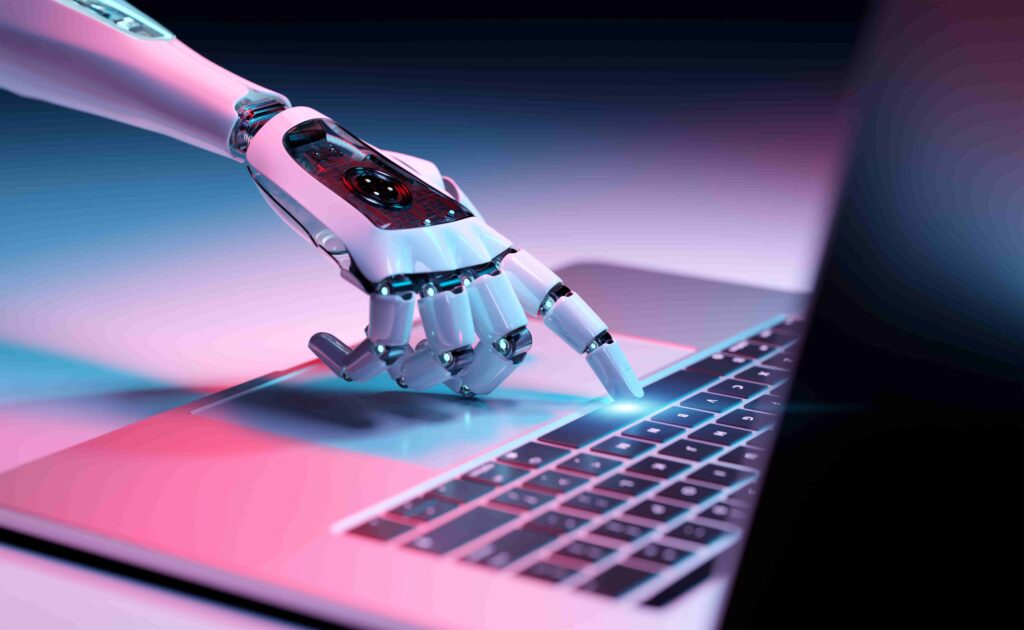
Artificial intelligence (AI) is playing a transformative role in space exploration and advancing scientific research.
Thanks to its ability to process large volumes of data, learn from complex patterns, and operate autonomously in hostile environments, AI is revolutionizing our understanding of the universe and accelerating scientific discoveries that would previously have taken decades.
In space exploration, where conditions are extreme and challenges are immense, AI has become an indispensable tool for automated missions, astronomical data analysis and planning for future planetary colonizations.
1. AI in Automated Space Missions
Space missions increasingly rely on autonomous systems to operate in distant locations where direct human control is not feasible.
- Autonomous Rovers:
AI-powered rovers like NASA's Perseverance can independently explore the surface of Mars, analyzing the terrain, collecting samples and sending data back to Earth.- Capacity: AI enables rovers to navigate difficult terrain, avoid obstacles, and decide which areas to explore based on real-time analysis.
- Orbital Vehicles:
Satellites and probes use AI to adjust their trajectories, monitor onboard systems and even identify potential study targets, such as exoplanets and asteroids.
2. Spatial Data Analysis
The amount of data generated by telescopes, satellites, and probes is immense, making manual analysis virtually impossible. AI offers a powerful solution to efficiently process and interpret this information.
- Discovery of Exoplanets:
AI algorithms analyze data from telescopes like Kepler and James Webb to identify signs of exoplanets orbiting other stars.- Impact: AI has already helped discover thousands of exoplanets, many of them located in the so-called habitable zone, where life may be possible.
- Mapping the Universe:
Machine learning models process images of galaxies, nebulae, and black holes to create accurate maps of the observable universe.- Example: Automated analysis of Hubble images has revealed details about galaxy formation that would have previously gone unnoticed.
3. Future Space Mission Planning
The use of AI is enabling space agencies and private companies to plan missions with greater accuracy and efficiency.
- Lunar and Martian Colonization:
AI is being used to study potential landing sites, identify natural resources, and plan infrastructure for lunar and Martian colonization missions.- Example: AI-based simulations help predict how Martian habitats might withstand extreme conditions such as dust storms and solar radiation.
- Asteroid Exploration:
Asteroid exploration missions like Osiris-Rex use AI to analyze the chemical composition and predict the movement of these celestial bodies. This technology could also be crucial for future space mining efforts.
4. AI and Robotics in Space Exploration
Autonomous AI robots are opening up new possibilities for exploration in extreme environments.
- Assistant Robots in Orbit:
The ISS (International Space Station) already uses AI-equipped robots to help astronauts with routine tasks, such as maintenance and scientific experiments.- Example: Airbus' CIMON robot acts as an on-board assistant, interacting with astronauts and assisting in experiments.
- Exploration of Moons and Underground Oceans:
AI robots are being designed to explore the moons of Jupiter and Saturn, such as Europa and Enceladus, where subsurface oceans may harbor microbial life.

Personal Development Apps
Discover the best personal development apps for meditation, reading and self-knowledge. Boost your growth with technology!
5. Artificial Intelligence and Astronomy
AI is not only supporting space missions, but is also transforming the field of astronomy.
- Detection of Extraterrestrial Signals:
Algorithms analyze signals captured by radio telescopes to look for patterns that may indicate the presence of alien civilizations.- SETI and AI: The Search for Extraterrestrial Intelligence (SETI) program uses machine learning to identify unusual radio signals coming from space.
- Cosmic Event Prediction:
AI models help astronomers predict phenomena such as supernova explosions, galaxy collisions, and black hole-related events.
6. AI and Commercial Space Exploration
Private companies like SpaceX and Blue Origin are adopting AI to accelerate commercial space exploration and space tourism.
- Automated Releases:
AI optimizes rocket trajectories and reduces costs by predicting weather conditions and calculating efficient routes for space missions.- Example: SpaceX uses AI to land its rockets autonomously, allowing them to be reused.
- Space Tourism:
AI is being used to design safe, personalized experiences for space tourists, from flight paths to zero-gravity simulations.
7. Scientific Advances Thanks to AI
Beyond space, AI is accelerating discoveries in areas such as physics, biology and chemistry.
- Genomics and AI:
AI-powered genetic data analysis is helping to decipher human DNA, driving advances in personalized medicine and understanding rare diseases. - Theoretical Physics:
AI-based models help simulate subatomic particle interactions, advancing our understanding of the fundamental laws of the universe. - Computational Chemistry:
AI systems are designing new materials and chemical compounds, with applications in renewable energy and advanced electronics.
Conscious AI: Myths and Realities About Creating Artificial Consciousness
The idea of conscious machines has been a fascinating topic in science and science fiction for decades. The possibility of creating artificial intelligence systems capable of thinking, feeling and acting autonomously, with their own consciousness, arouses both excitement and fear.
However, the current reality of AI is far from achieving what would be true “artificial consciousness”.
In this topic, we demystify the idea of conscious AI, discuss advances in technology, and explore the philosophical, ethical, and technological challenges involved in this pursuit.
Common Myths About Conscious AI
The increasing sophistication of systems like ChatGPT, humanoid robots, and generative AI tools often leads to misunderstandings about their capabilities.
- Myth 1: AI Understands What It Is Doing
- Current AI operates based on patterns and algorithms, without understanding the meaning of what it is doing. For example, a chatbot can answer complex questions, but that does not mean it has “thoughts.”
- Myth 2: AI Has Emotions
- Algorithms can simulate emotions to improve interaction with humans (such as robots that “smile” or “show empathy”), but this is just programming. Real emotions require biological and subjective processes.
- Myth 3: AI Is Close to Being Conscious
- Despite advances, there is no evidence that AI is close to developing consciousness. Machines do not have the ability to introspect or create a subjective perception of the world.
Why Don't We Have Conscious AI Yet?
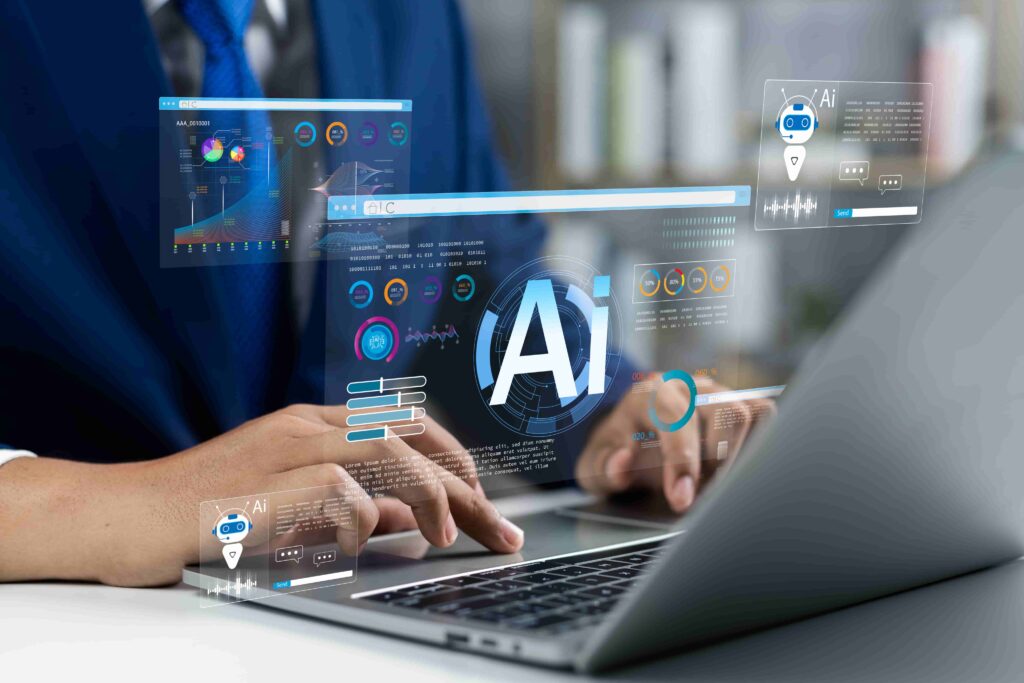
Creating a conscious AI is one of humanity’s greatest technological and philosophical challenges. This is due to several factors:
- Technological Limitations:
- Current AI systems are based on algorithms that process data based on patterns and mathematical logic. These models lack the neurological or biological processes that underpin human consciousness.
- Lack of Understanding about Human Consciousness:
- Even with advances in neuroscience, we still don’t fully understand how consciousness emerges in the human brain. Without that understanding, replicating it in machines is a monumental task.
- Complexity of Subjective Experience:
- Consciousness is not just a set of data or processes. It involves experiences, memories, feelings, and intuitions that cannot be easily codified.
Realities of Advanced AI
While conscious AI is still a distant dream, current systems are already capable of performing impressive tasks that often mimic aspects of consciousness.
- Simulation of Human Interactions:
- Virtual assistants and chatbots can respond in a highly personalized way, giving the impression of “thinking.”
- Examples include assistants like Alexa, Siri, and Google Assistant.
- Continuous Learning:
- Machine learning systems can improve their performance based on new data, appearing to “learn” as a human would.
- Automated Decision Making:
- Sophisticated algorithms analyze complex scenarios to make fast and accurate decisions, such as financial trading systems or medical diagnosis.
While impressive, these capabilities are based on calculations and predictions, not consciousness.
Conclusion
The future of artificial intelligence promises profound and transformative changes in all aspects of life.
From technological advancements to ethical challenges, AI will continue to shape the world we live in, creating a delicate balance between innovation, social impact, and responsibility.
Interested in protecting your privacy in the ever-evolving digital world? Check out our article “Digital Privacy: How to Protect Your Data in a Connected World” and discover how to navigate the online environment safely and peacefully.

Digital Privacy
Understand how to protect your data, applications and browsing on mobile devices with essential privacy and security practices.
